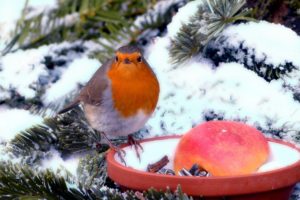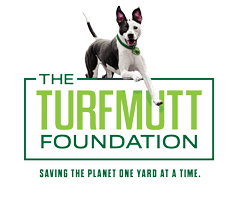Latest Posts
- Have a purpose when backyardingAugust 5 2021
- Study: Time outside alters our microbiomeAugust 4 2021
- Happy National Mutt Day from Mo-MoJuly 27 2021
- New home? Avoid these common mistakes in your yard.July 26 2021
- Infographic: Plan a backyard staycation this summerJuly 22 2021
Categories
Archive
October 22nd
Birds are disappearing: your backyard can help

A recent study published in the journal Science indicated that the number of birds in North America has dropped by 29% over the last 50 years. It is a statistic that equates to a decline in 2.9 billion birds since 1970. Grassland birds (meadowlarks and sparrows) were hit particularly hard, experiencing a 53% population drop. Those living in sensitive coastal areas were also highly impacted.
Why do birds matter?
There are lots of good reasons that we should band together to stop the decline in the avian population. Not only do birds contribute to the beauty of the world around us, they also have an important part in the ecosystem. Birds pollinate plants that feed us and enhance our environment. Additionally, birds help with pest control. Bird species like vultures play an important part in the lifecycle of nature, and are nature’s garbage collectors.
How can you & your backyard help?
Here are a few things you can do in your own home and backyard to help our feathered friends.
Make your backyard bird friendly. There are a number of ways you can support birds with your living landscapes. Mix in native plants – they are ideal for restoring the habitat birds depend upon. You can also layer different plant types for protection. Plants that produce fruit fuel migratory birds, and flowering plants provide nectar and insects. Basically, think like a bird when building out the living landscapes in your backyard!
Nurture community green space. Expand the bird habitat by working with neighbors to foster the same plant principles you put into action in your own backyard into the community at large. You can spearhead a bird habitat restoration project or work with your local government to work together to support bird habitat.
Go “Lights Out”. Brightly lit glass kills up to a billion birds per year. Many of these are migratory birds. In Chicago, the U.S. Lights Out movement reduced bird deaths at one building alone by about 83 percent, just by turning off the lights.
To learn more about the value of our living landscapes, go to SaveLivingLandscapes.com.





